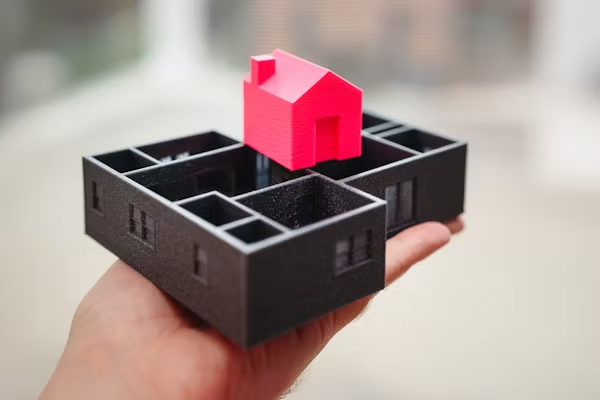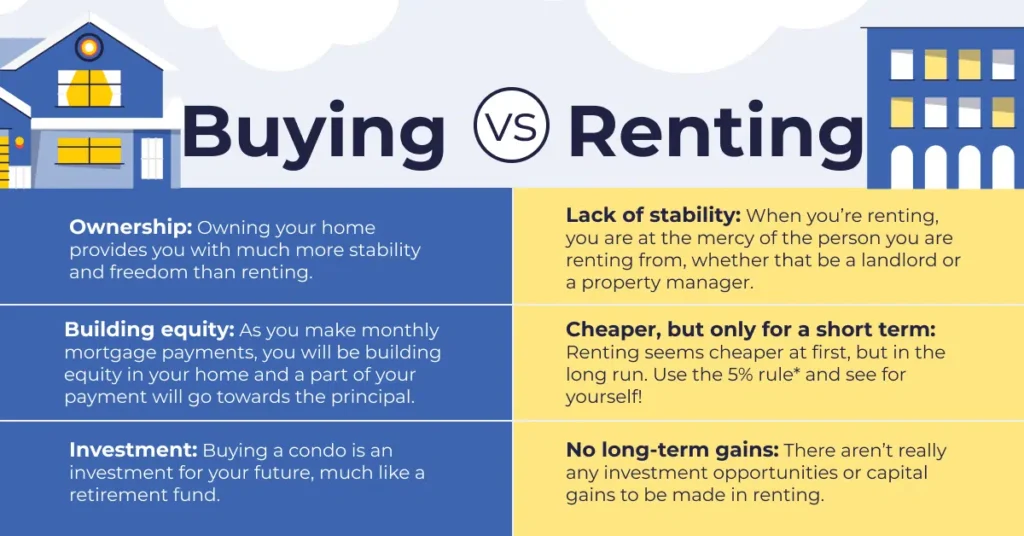
Is It Better to Buy or Rent in Toronto?
Toronto is one of Canada’s most expensive and dynamic real estate markets. Whether you’re a first-time buyer or someone debating between renewing a lease or taking the plunge into homeownership, the question of renting versus buying is one of the biggest financial decisions you’ll make.
While renting gives you flexibility and fewer upfront costs, owning a home brings long-term financial benefits and stability—if you’re ready for the commitment. The real answer? It depends on your goals, finances, and how long you plan to stay in one place.
Let’s break it all down and help you figure out which path makes more sense for your life in Toronto.
Renting a Home in Toronto
Renting is often the go-to option for those who want to stay mobile, avoid debt, or test-drive a neighbourhood before committing to a purchase.
Why Renting Works for Some People
If you’re not planning to stay put for more than a year or two, renting makes life easier. You’re not tied to a mortgage or responsible for surprise expenses like a broken furnace or roof leak. With renting, it’s usually as simple as giving notice, packing up, and moving on.
Plus, the upfront costs are minimal. You’ll only need the first and last month’s rent, compared to a hefty down payment and closing costs when buying.
But Renting Has Its Drawbacks
Toronto renters face the risk of renovictions, sudden rent hikes, or losing their home if the landlord decides to sell. And while rent might feel cheaper upfront, you’re not building equity. In other words, you’re paying someone else’s mortgage—and not seeing any long-term return.
Also, the rent control system only applies to certain buildings, and even then, landlords can still apply for above-guideline increases. If you’re renting a newer condo, your rent could jump significantly year to year.

Owning a Home in Toronto
For many, homeownership is a milestone. It gives you control over your space, predictable payments (especially with a fixed rate), and the potential for your property’s value to grow over time.
Why Buying Can Be a Smart Long-Term Move
Owning a home allows you to build equity with each mortgage payment. Over time, your home becomes a financial asset that can help fund renovations, education, retirement, or even investment properties. And in Canada, the principal residence exemption means any capital gains when selling your home are tax-free—making it one of the few big investments with no tax bite.
Plus, you’re not at the mercy of a landlord. You can paint the walls, knock down a wall, or build a deck—all without needing permission.
What to Watch Out For
Homeownership comes with more responsibility. You’ll need to budget for repairs, property taxes, home insurance, and potentially condo fees. And if you’re not planning to stay long term, the high upfront costs—like your down payment and closing fees—may not be worth it.
Also, if you have an adjustable-rate mortgage, your payments could change multiple times a year, depending on Bank of Canada decisions. That’s very different from renting, where your rent might only rise once a year (if at all).
Rent vs Buy in Toronto: The 5% Rule
One of the simplest ways to compare renting and owning is the 5% Rule. It helps you calculate how much owning a home is costing you in non-recoverable expenses—and then compare that to your monthly rent.
What Counts as Non-Recoverable Costs?
- For Renters: Rent is 100% non-recoverable—once it’s paid, it’s gone.
- For Homeowners: Some homeownership costs don’t build equity and are therefore non-recoverable, such as:
- Property taxes (≈1% of the home’s value/year)
- Maintenance costs (≈1% of the home’s value/year)
- Opportunity cost of invested capital, or “capital costs” (≈3%)
Together, these add up to roughly 5% of the home’s value annually.
How to Use the 5% Rule
Let’s say you’re looking at a $500,000 home:
- 5% of $500,000 = $25,000/year in unrecoverable costs
- Monthly equivalent = $25,000 ÷ 12 = $2,083.33/month
If you can rent a similar place for less than $2,083/month, renting might be more cost-effective.
Toronto Example: Rent vs Buy
Now let’s apply the 5% rule to actual market data from Toronto.
- Average Condo Price: $681,855
- 5% of Value = $34,093/year
- Monthly Equivalent = $2,841
- Average Monthly Rent in Toronto (2024): $2,632
Since average rent is below the 5% threshold, renting appears to be the cheaper option—at least in the short term.
📊 Rent vs Buy in Toronto – Monthly Cost Comparison (5% Rule)
Using the 5% Rule, this chart compares the real monthly cost of owning vs renting a home in Toronto based on a $850,000 property.
| Scenario | Monthly Rent | Monthly Ownership Cost | What’s Included |
|---|---|---|---|
| Renting a 2-Bed Condo | $2,850 | — | Rent + utilities |
| Owning a $850K Condo (20% down, 5.24% fixed rate) |
— | $4,325 | Mortgage + taxes + condo fees |
| 5% Rule Monthly Cost of Ownership (5% of property ÷ 12) |
— | $3,540 | Maintenance, taxes, opportunity cost |
Of course, this doesn’t account for property appreciation or equity growth, which could make owning more profitable in the long run.
Frequently Asked Questions
Is it better to rent or buy in Toronto right now?
If you’re not ready to stay put for at least 5–10 years or don’t have a large down payment saved, renting may be the smarter option. But if you’re planning long-term and want to build equity, buying can set you up financially.
How much do I need to buy a home in Toronto?
At a minimum, you’ll need 5% of the purchase price as a down payment for homes under $500,000. Above that, you’ll need 10% on the portion from $500,000 to $999,999, plus closing costs (typically 3–5%).
What hidden costs come with buying?
You’ll need to budget for land transfer taxes, legal fees, home inspections, property tax, mortgage insurance (if putting less than 20% down), and maintenance costs. They add up quickly, so plan wisely.
Final Thoughts: Renting vs Buying Isn’t Just a Math Problem
There’s no universal answer. Renting can be a smarter move if you’re early in your career, unsure where you want to live, or need more financial flexibility. Buying becomes more appealing if you want roots, long-term gains, and control over your living space.
When you look at the next 5–10 years, buying often wins from a wealth-building standpoint—but only if you’re ready for the responsibility.
Take the Next Step With Mortgage.Expert
If you’re still unsure, we can help you run the numbers. Whether you’re considering buying your first home or trying to lock in a smarter mortgage renewal, our licensed advisors will walk you through your best options—zero pressure, just straight talk.
📞 [Book your free consultation]
🧮 [Use our Rent vs Buy Calculator (Coming Soon)]
🏠 [Explore rates personalized for your budget]
To know the Impact of Trumps Tariff on Canadian Mortgage Rates Click Here
Stuck with a Mortgage Decision?
Don’t stress — our team is here to help. Reach out for free, no-obligation guidance.
Contact the Experts



